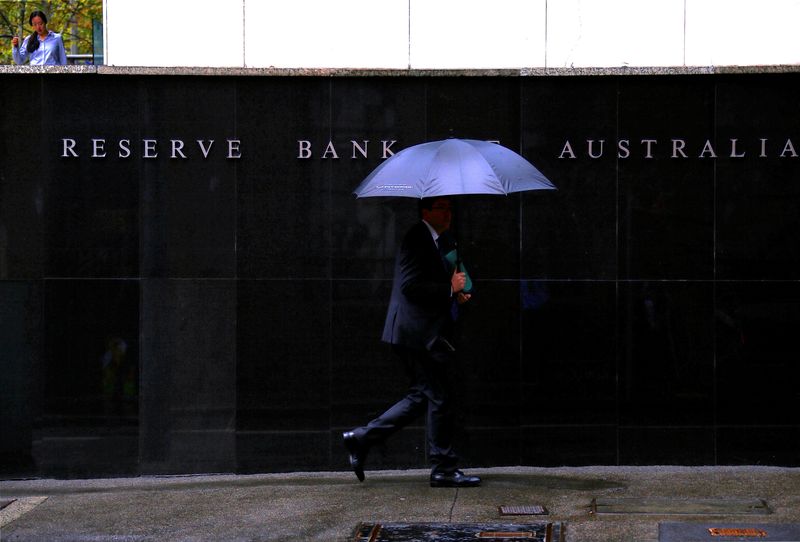By Wayne Cole
SYDNEY (Reuters) - Australia's central bank is in a bind as it contemplates its first interest rate increase in more than a decade, with its decision set to antagonise one of the main political parties just as it faces a sweeping review of past policies.
It all comes down to timing. The Liberal-National government faces a close election fight against the Labor opposition on May 21, and the Reserve Bank of Australia (RBA) has to decide whether to hike at its May 3 meeting or wait until early June.Analysts had assumed it would lift rates from emergency lows of 0.1% at its June 7 review, once it had seen more data on wages and the economy.
All that changed this week when figures showed inflation jumped to 20-year highs in the first quarter, with underlying price measures bursting past the RBA's 2-3% target range.
So alarming was the surge that markets immediately brought forward the timing of the first hike to May, fully pricing a rise to 0.25%, and pricing in another 225 basis points of increases before the end of the year.
There is also little dispute that tightening is needed given consumer prices rose a red-hot 5.1% in the year to March, well above even the most bearish forecast.
"On seeing that number our thinking is now that it precludes the 'luxury' of waiting for the additional information on the labour market and the RBA board will have to act on May 3," Westpac Bank chief economist Bill Evans said.
The median forecast in Reuters April 27-29 poll of 32 economists showed the RBA is expected to raise its official cash rate [AUCBIR=ECI] by 15 basis points next week. When asked whether the RBA should lift interest rates before the election, 13 of 20 respondents said "yes".
Voters are citing the cost of living as their main concern in opinion polls. Fearing a backlash, in its budget last month the government halved the excise duty on petrol and handed out
A$250 in cash to pensioners and veterans.
Prime Minister Scott Morrison, who is running on a ticket of sound economic management, blamed inflation on the Ukraine conflict and global supply bottlenecks, while Labor claimed the conservative government was happy to see real wages declining.
ELECTION ISSUE
A rate hike during the current campaign would be certain to ruffle feathers in the government, while a delay would open the RBA to accusations of putting politics ahead of good policy, something it has always strenuously avoided.
If the RBA waits until June, Labor could question why it waited to start delivering the bad news to voters, particularly given a rapid-fire series of hikes are expected.
There is a precedent for a rate change during an election campaign. The RBA having done so weeks before the ballot in 2007, which the Liberal-National government went on to lose.
An added complication for the central bank is that both parties have committed to a review of its past performance with an eye to rectifying any perceived shortcomings.
Three of the four major Australian banks are calling for a rate rise next week, and the fourth is only tipping June because the RBA had said it would prefer to see wage data due on May 18.

"The breadth and momentum in the CPI report strongly suggests that it would be imprudent for the RBA to wait for more data on wages," argued ANZ senior economist Felicity Emmett.
"After all, it is inflation that the RBA targets, not wages."